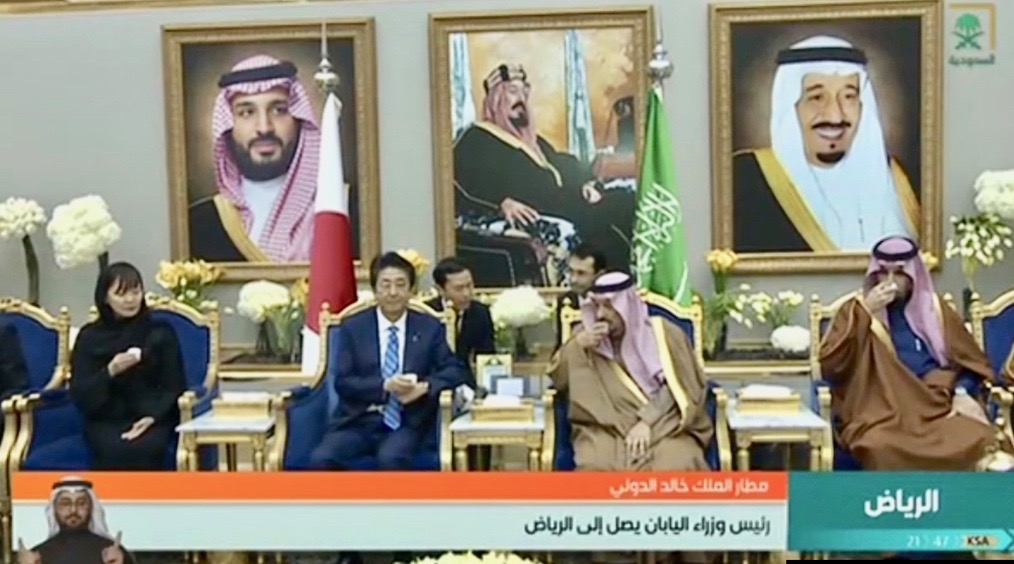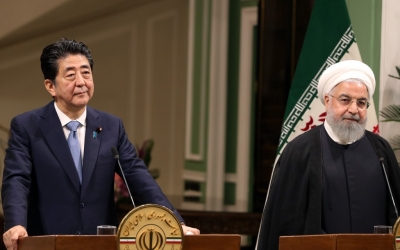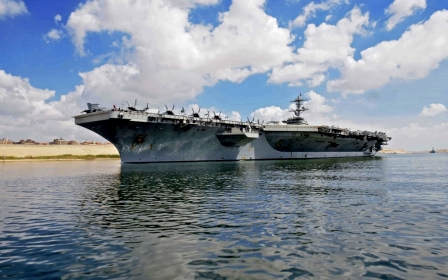Japan's PM Abe begins Gulf tour in Saudi Arabia amid regional tensions

Japan's premier arrived on Saturday in Saudi Arabia at the start of a Gulf tour during which he hopes to ease tensions after the US killed a top Iranian general.
The official Saudi news agency SPA said Prime Minister Shinzo Abe and his delegation were received by senior officials including Economy Minister Mohammed al-Tuwaijri.
During his five-day tour, Abe will also visit the United Arab Emirates and Oman, where a new ruler was sworn in on Saturday following the death of modern day Oman's founding father Sultan Qaboos, AFP reported.
Abe's Gulf trip had initially been thrown into doubt after Tehran responded to the US's 3 January killing of Qassem Soleimani by launching a barrage of missiles at bases hosting American troops in Iraq. The escalation prompted fears of an all-out war.
Those fears have subsided since US President Donald Trump said Iran appeared to be standing down.
"To avoid further escalation of the tense situation in the Middle East, Abe will exchange opinions with the three countries" he is visiting, Japanese government spokesman Yoshihide Suga said ahead of the visit.
"In each of the countries, we plan to ask for cooperation in ensuring a stable energy supply and the safety of vessels," he added.
Japan last month announced it would deploy a military vessel and two patrol planes to the region to protect its shipping interests.
Japan's cabinet approved the deployment last month and Defence Minister Taro Kono issued an order on Friday for the warship and two P-3C patrol planes to head to the Middle East to protect ships bringing goods to Japan, Reuters said.
The patrol planes were to leave Japan on Saturday and start operations from 20 January. The destroyer will depart Japan for the region on 2 February and begin patrols later in the month.
"Ninety percent of our oil travels through those waters and so it's a lifeline for the Japanese economy," Kono said at a media briefing.
The operation is set to cover high seas in the Gulf of Oman, the northern Arabian Sea and the Gulf of Aden, and Suga said Abe would be explaining the mission to leaders in the countries he visits.
Abe has in recent months tried to carve out a role as mediator between Japan's ally Washington and Tehran, with which Tokyo has longstanding ties.
Japan was formerly a major buyer of Iranian crude but stopped purchases to comply with US sanctions imposed after Washington in May 2018 unilaterally quit the landmark 2015 nuclear deal with Tehran.
In December, Iranian President Hassan Rouhani visited Abe in Tokyo after a visit by the Japanese prime minister to Tehran in June.
That visit came amid tensions in the Gulf following a spate of attacks on oil tankers that Washington blamed on Iran despite denials from Tehran.
At that time, Rouhani welcomed Japan's decision not to join a US-led naval mission in the Gulf.
"Japan has announced it will not take part in the Americans' plans for security in the region... which is something we welcome," Rouhani said on state TV after returning from a visit to Japan.
"Japan is sending a surveillance vessel, but not to the Gulf and the Strait of Hormuz," he said.
Middle East Eye delivers independent and unrivalled coverage and analysis of the Middle East, North Africa and beyond. To learn more about republishing this content and the associated fees, please fill out this form. More about MEE can be found here.






